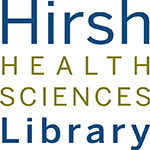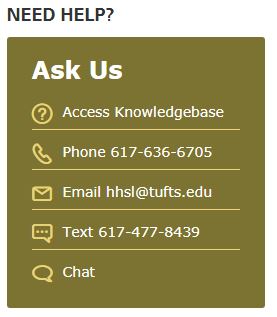In our continued celebration of International Open Access Week, I would like to direct your attention to some of my favorite scholarly resources that just so happen to also be Open Access or promote Open Access.
In case you need a refresher, in his book Open Access, Peter Suber writes: “The basic idea of OA is simple: Make research literature available online without price barriers and without most permission barriers.” In a nutshell, OA materials are free to access, and you can download, copy, distribute, transmit, harvest, use web crawlers, etc. for free as well. Just give attribution to authors and creators and you’ll all set.
So, can it be any good if it’s free? You bet! OA publishers have banded together to police the landscape, ensuring adherence standards regarding peer review, licensing, and research integrity, and more.
Stay tuned all week as we give you more information about OA publishing, self-archiving, other free learning materials online, and more! But for now, enjoy some of our favorite scholarly resources in the OA community.
Affiliated with the Association of Research Libraries, the Scholarly Publication and Academic Resources Coalition is an international alliance of academic and research libraries working to create a more open system of scholarly communication. Includes excellent information about Article-Level Metrics, a new approach to quantifying the reach and impact of published research.
Established in 2002, the Directory of Open Access Journals works to collect and provide access to scholarly OA journals across international borders and disciplines.
With a publishing arm over ten years old, the Public Library of Science publishes seven peer-reviewed, OA journals. A paper published in a PLOS journal has recently received international attention when used as supporting material in a U.S. House of Representatives hearing about the spread of the Ebola virus.
Based in the UK, BioMed Central published 269 peer-reviewed Open Access journals, including a wide array of specialty titles in medicine.
http://biodiversitylibrary.org/
Finally, I have to mention the Biodiversity Heritage Library, a consortium of natural history and botanical libraries working to digitize biodiversity literature and make it available for open access. BHL is not a publisher, but works with libraries and publishers to make important historical and current scientific literature available free to anyone with an internet connection. Besides serving some of the rarest and most remarkable literature you will ever see online, my interest in the OA world stems directly from the 6 years I spent working with BHL.
This is just a small selection of resources in an ever-expanding OA world; feel free to comment if there are others you would like to share!

What is scholarly communication?
Scholarly communication refers to “the system through which research and other scholarly writings are created, evaluated for quality, disseminated to the scholarly community, and preserved for future use (Association of College and Research Libraries ).”
Scholarly communication relies in part on the ability of research libraries to purchase published works. The marketplace for scholarly publishing has developed in ways that challenge libraries’ ability to acquire the works needed by their users. Commercialization of publishing in both the for-profit and nonprofit sectors has led to egregious price increases and unacceptable terms and conditions of use for some key research resources needed by the scholarly community.
How can Tufts University Libraries help?
The Tufts University Libraries are here to help you navigate through the publishing landscape and learn about copyright, fair use, and open access publishing.
Some ways Scholarly Communications @Tufts can help you:
- Learn about managing your copyrights, and use the Author’s Amendment when you negotiate with publishers.
- Consider using a less restrictive Creative Commons license.
- Deposit your research in the Tufts Digital Repository, so that it can be openly accessed.
- Consider putting your course in Tufts OpenCourseWare, and construct it carefully, so that you have the necessary permissions to do so.
- Consider publishing in an Open Access Journal.
- Keep up with developments in the open access movement by regularly reading:
- Open Access News – daily blog following the latest open access developments supported by the Open Society Institute and SPARC
- Create Change – advocacy and education campaign cosponsored with the Association of Research Libraries and the Association of College and Research Libraries to engage the academic community in reclaiming scholarly communication.
- The Scholarly Publishing and Academic Resources Coalition (SPARC), is an alliance of universities, research libraries, and organizations built as a constructive response to market dysfunctions in the scholarly communication system.
For more information about Scholarly Communications @Tufts visit the website. And if you’re interested in keeping up with changes to publishing and open access visit the Scholarly Communications Team’s reading list.
Recent Posts
Categories
- 4th Floor Tabling (3)
- affiliation (4)
- Announcements (353)
- Book/Resource Reviews (117)
- Hours (131)
- Interviews (4)
- New Titles & Resources (114)
- News & Events (266)
- Open Workshops (48)
- Outside News & Events (66)
- resources (18)
- throwback thursday (5)
- Tips & Tricks (135)
- Uncategorized (148)
Tags
4th floor affiliation books Boston circulation crafts electronic resource electronic resources events exams extended hours food fun fun lab funlab graduation HHSL Hirsh Health Sciences Library holiday holiday hours holidays hours leisure reading library fun lab library service desk library staff new books open access open access week open workshop Open Workshops reserves resources staff statistics summer survey tea Thanksgiving therapy dogs Tufts Hirsh Health Sciences Library website welcome! writing consultants writing helpFollow us @TuftsHHSL!
Twitter feed is not available at the moment.






